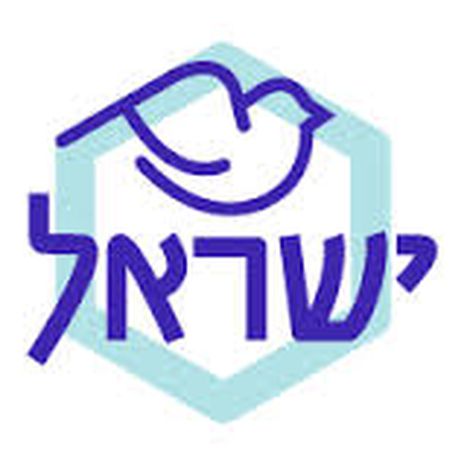
Israeli-Palestinian Conflict - Negotiation Slot for a Month
Published on
While Palestinians try to unite (Hamas-Fatah deal) and promote their case in UN (recognition of independence) and on the ground (flopped air-flotilla and failed Flotilla II on July) and while so-called Middle East Quartet and EU foreign ministers are making their empty outdated statements to reopen stagnated Israeli-Palestinian negotiations also in Israel there is some need for new initiatives or
refresh the old ones.
With the Middle East peace process at a standstill, the Palestinians, backed by the Arab League, have decided to seek full admission to the United Nations as part of what they are describing as a new approach to their national struggle. Israel opposes the Palestinian bid for UN membership and launched a diplomatic counteroffensive in Europe and beyond to oppose the UN vote. It is relying heavily on the United States to persuade the Palestinians to abandon the plan or veto the Security Council vote.
One of newest parts of Israeli counter-offensive is a video on YouTube, where Israel's deputy foreign minister Danny Ayalon answers the use of such terms as "West Bank," "occupied territories," and "1967-lines," and makes Israel's case in clear, factual terms without equivocation. Ayalon says Judea and Samaria were taken from the occupying Jordanians during a defensive war and therefore the "settlements" are legal. "The idea behind the creation of the video is distributed in an innovative way and explains the Israeli position in fighting unilateral recognition of a Palestinian state," Ayalon said.
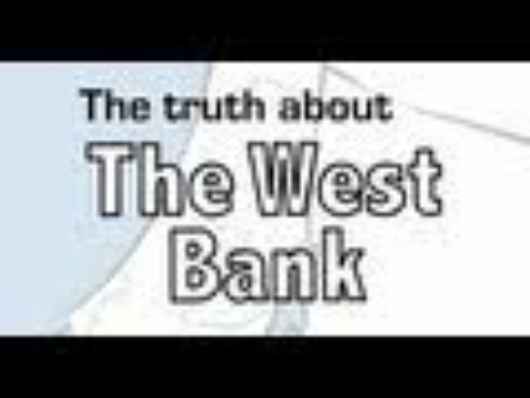 The Truth About the West Bank -videoIsrael's
Deputy FM Danny Ayalon explains the historical facts relating to the
Israeli Palestinian conflict. The video explains where the terms "West
Bank", "occupied territories" and "67 Borders" originated and how they
are incorrectly used and applied.
The Truth About the West Bank -videoIsrael's
Deputy FM Danny Ayalon explains the historical facts relating to the
Israeli Palestinian conflict. The video explains where the terms "West
Bank", "occupied territories" and "67 Borders" originated and how they
are incorrectly used and applied.
Following the release of the video, the Palestinian Authority put out an official press release condemning the video claiming that it was a "cynical and falsified account of history and international law". Chief Palestinian negotiator Dr. Saeb Erakat demanded an official explanation for the video. In reaction to the condemnation, Ayalon said: "For too long the Palestinian narrative of international law and rights has gone unchallenged and this over the top reaction to a public diplomacy video proves that they are acting like spoilt children who have had their way for too long. They are unable to challenge a single fact in the video and have completely avoided a legitimate and honest discussion on the issues."
Earlier, Ayalon had proposed a public debate on issues relating to the Israeli-Palestinian conflict after Erekat sent out an official press release calling mentioned YouTube video “a falsified account of history and international law". Erekat rejected offer. "Erekat is used to telling the world that Israel 's policies are illegal and against international law and I offered him the chance to back up his own statements and he is proving unable or unwilling to do so," Ayalon added. "It demonstrates that their rhetoric is just empty words and slogans and folds like a house of cards once it is tested." (Source: Press release of Minister Ayalon on 31st July, 2011)
Some new paradigms
Jerusalem Post columnist Caroline B. Glick claims in her new article that Israel has only two options: The Jewish state’s choices are to either annex Judea and Samaria or be destroyed by its neighbors. She concludes following:
If the Palestinians take control, they will establish a terror state in the areas, which – like their terror state in Gaza – will use its territory as a starting point for continued war against Israel. It isn’t only Israel’s experience with post-withdrawal Gaza and South Lebanon that make it clear that a post-withdrawal Palestinian-controlled Judea and Samaria will become a terror state.
The second option is for Israel to annex Judea and Samaria, complete with its hostile Arab population. Absorbing the Arab population of Judea and Samaria would increase Israel’s Arab minority from 20% to 33% of the overall population.Obviously such a scenario would present Israel with new and complex legal, social and law enforcement challenges. Israel would have to begin enforcing its laws toward its Arab citizens in a manner identical to the way it enforces its laws against its Jewish citizens. But it would also provide Israel with substantial advantages and opportunities. On the other side, annexing Judea and Samaria holds unmistakable advantages for Israel. For instance, Israel would regain complete military control over the areas. Israel ceded much of this control to the PLO in 1996.
Indeed annexation won’t be easy, but if the alternative really is national suicide there could be some sense. A number of peace proposals have included the caveat found in President Obama's recent speech: that the pre-1967 border can be modified as a result of mutually agreeable land swaps to permit Israeli settlers in areas close to Jerusalem to remain in what is now occupied Palestinian territory, with an equivalent amount of Israeli land to be transferred to the Palestinians.
A totally different approach to one-state solution is the one proposed by Maath Musleh, a Palestinian from Jerusalem and an activist in the Palestinian youth movement.His solution is to combine Israel, West-Bank, Gaza and Jordan together.
A one-state solution that would include the historic land of Palestine and what’s now known as Jordan. This solution could be the answer for all the concerned parties in the conflict; the Zionists, the Palestinians, and the Jordanians. The Jordanian monarchy was established in the early-mid 20th century. After being promised a united Arab kingdom, Abdullah was given a princedom based in Amman. This princedom has evolved to a kingdom due to the influx of Palestinians who were expelled from their homeland. In 1948, Jordan was happy to annex the West Bank to its territories before the disengagement in the 1980s. The king would not have a problem with a one-state solution that includes both historic Palestine and Jordan if he was still the king. This would have to be an honorary position like in the UK. But the refugee question is the core of the conflict. Most Palestinian refugees reside in Jordan. Thus, the large one-state solution would solve the issue without posing a demographic threat to the Jewish presence. With an honorary king ruled by a parliament formed by the residents, equality could be applied to all citizens. (Source Ma'an News Agency)
The proposal of mr Maath Musleh is a bit different than earlier sc Jordanian option. Israel considered a proposal by King Hussein (3/72) to join the West Bank with Jordan as a federation under Jordanian leadership. In the “London Agreement” (4/87) Foreign Minister Shimon Peres and King Hussein unofficially agreed on Jordanian involvement in any resolution for the West Bank. Since then Jordanian option has not been out from agenda but during last years it has been refreshed as part of three-state solution, which also I have been propagated few years.
Jordanian option based to 1922 mandate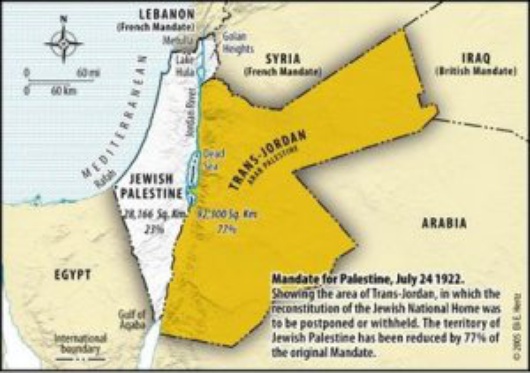
Delaying UN bid?
On Palestinian side there has been some discussions to delay UN-bid planed to on September. One reason is the money; first the US Aid money and second Aid from Arab neighbours. A Palestinian-led UN fight over Israel may provoke Congress to call for suspending aid to the Palestinian Authority, which is estimated to have been average of $600 million in annual support to the Palestinian Authority since 2008. The United States is also the single largest donor to the United Nations Relief and Works Agency (UNRWA), which is charged with aiding Palestinian refugees, including those in Gaza. Also Palestinians PM Salam Fayyad reported that of the $971 million in pledges made by donors so far this year, only $330 million had actually been paid. Those arguing most strongly for Palestinian unilateralism, the PA's Arab neighbors, are among the stingiest with aid -- among them, only the UAE, Oman, and Algeria have fulfilled their aid pledges.
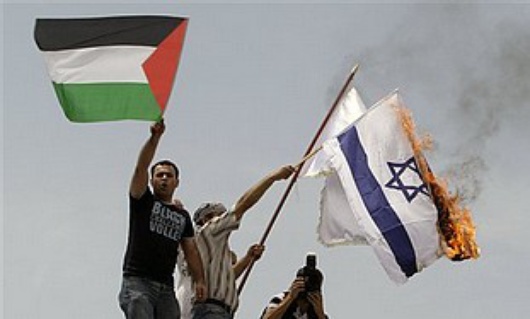 Some
members in Palestinian leadership are worried it would put the
Palestinians on a collision course with the Americans and Europeans, who
are the Palestinians’ major founders.
One government official noted that “anyone who knows the reality,
understands the UN path is a dead end, and the only way to peace and
Palestinian statehood is through direct Israeli-Palestinian
negotiations.”
Some
members in Palestinian leadership are worried it would put the
Palestinians on a collision course with the Americans and Europeans, who
are the Palestinians’ major founders.
One government official noted that “anyone who knows the reality,
understands the UN path is a dead end, and the only way to peace and
Palestinian statehood is through direct Israeli-Palestinian
negotiations.”
Besides money there is also some uncertainty between not only Hamas and Fatah (implementation of their recent deal) but between Hamas and other groups in Gaza. According Debkafile Hamas began building fortifications to block the territory's western boundary with Egyptian Sinai. Hamas is said to be anxious to ward off the spillover of
Libyian cars in Gaza
post-revolutionary chaos from Egypt and Sinai into the Gaza Strip and curtail the new influx of fighters and smugglers from Libya and Sinai Bedouin affiliated with al Qaeda. These groups have gone into the smuggling tunnel business on their own account and are causing mayhem. Hamas blames them for the resurgence of rocket fire into Israel in violation of the informal ceasefire agreed with Israel four months ago. Debkafile reports from sources familiar with the situation in the Gaza Strip report around a thousand shiny new Kia cars with Libyan number plates currently stocked in the Gaza Strip awaiting buyers in Arab countries. Hamas now finds the mafia shaping up between the Libyan intruders in flight from the war racking their country and al-Qaeda affiliates in Gaza and Sinai as a threat to its rule in the Gaza Strip.
On the Egyptian side over Gaza tensions are rising. Israel Hayom reported on 31.07.2011 that gunmen launched rocket-propelled grenades at the al-Shulaq natural gas terminal (Sinai Peninsula), hitting the pipeline that directs gas to Israel and Jordan. The line, which has not been repaired since a previous attack on July 12, did not contain any gas. In a related development, Egyptian state media reported that at least six people were killed and at least 21 were injured in unrest that began Friday, when more than 100 armed men rode into the town of El-Arish in Sinai and tried to storm a police station. Authorities said some of the attackers waved flags bearing Islamic slogans as they fired shots into the air. Six people reported killed after 100 armed men try to storm El-Arish police station. After the attack on the pipeline and a separate weekend attack on a police station in the port town of El-Arish, Egyptian security sources told Israel Hayom that the new government in Cairo was losing control over part of the peninsula.
"The peace agreement between Israel and Egypt is crumbling." | Photo credit: AFP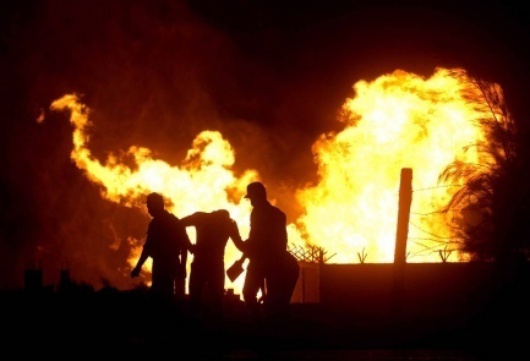
Prospects of Violence
According analysis ( A Coming Storm? Prospects and Implications of UN Recognition of Palestinian Statehood ) made be The Washington Institute for Near East Policy there are increasing signs of a potential outbreak of Palestinian violence in the near term, with some analysts predicting the eruption of a “third intifada.” The influence of the Arab Spring, the prolonged deadlock in negotiations, and the prospect of a breakdown in Israeli-Palestinian security cooperation (following the Fatah-Hamas agreement and the potential for the suspension of U.S. funding for the PA) all tend in this direction. In addition, there is growing popular and political support for Palestinian civil disobedience initiatives, which, in the history of Israeli-Palestinian relations, have often deteriorated into violent confrontation. There are mitigating factors as well, most notably the improvement of economic conditions in the West Bank and the lasting impact of the recent war in Gaza, that may make many Palestinians reluctant to return to violence.
According analysis mentioned there are bad options, and worse options, not good ones. Policy-makers may need to face the uncomfortable conclusion that whether efforts to frustrate the Palestinian UN initiative succeed or not, things are likely to get worse before there is even the prospect of them getting better. Whether or not Palestine is recognized at the UN, the downward spiral away from peacemaking seems to be intensifying at an alarming pace.
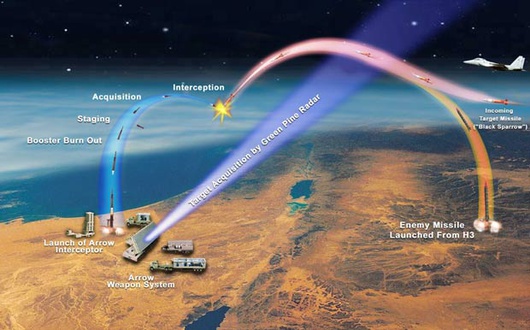 Israel
is continuing to strengthen its defence for possible threads. It has
successfully tested its Arrow 3 anti-missile interception system, a
locally developed system designed to intercept and destroy ballistic
missiles while they are still in the earth's atmosphere. Once
operational, Arrow 3 will become the upper tier of the Israel Defense
Force's multi-tiered active air defense concept, which aims to provide a
comprehensive shield against a multitude of rocket and missile threats.
Israel currently deploys the improved Arrow 2, which can shoot down
long-range ballistic missiles. The Magic Wand and Iron Dome anti-missile
systems were developed to shoot down shorter range projectiles. Magic
Wand is still in production, while Iron Dome has already proven itself
in operational incidents and is being deployed countrywide. (Source Israelhayom , more about Israel's missile defence e.g in Will Iron Dome balance the HamasTerror? ). This year Israel has also developed both tactics and equipment of IDF to respond possible civilian upraisings (3rd
Intifada) over borders and possible war with Hizbollah, which already
has transferred more upgraded missiles from Syria to southern Libanon.
Israel
is continuing to strengthen its defence for possible threads. It has
successfully tested its Arrow 3 anti-missile interception system, a
locally developed system designed to intercept and destroy ballistic
missiles while they are still in the earth's atmosphere. Once
operational, Arrow 3 will become the upper tier of the Israel Defense
Force's multi-tiered active air defense concept, which aims to provide a
comprehensive shield against a multitude of rocket and missile threats.
Israel currently deploys the improved Arrow 2, which can shoot down
long-range ballistic missiles. The Magic Wand and Iron Dome anti-missile
systems were developed to shoot down shorter range projectiles. Magic
Wand is still in production, while Iron Dome has already proven itself
in operational incidents and is being deployed countrywide. (Source Israelhayom , more about Israel's missile defence e.g in Will Iron Dome balance the HamasTerror? ). This year Israel has also developed both tactics and equipment of IDF to respond possible civilian upraisings (3rd
Intifada) over borders and possible war with Hizbollah, which already
has transferred more upgraded missiles from Syria to southern Libanon.
Concept of Demilitarized Palestinian state
As one part of solution Israel has called for any future Palestinian state to be demilitarized. During the Oslo Process, Israel insisted on maintaining full control over the external security perimeter of the Palestinian Authority (PA) while granting the Palestinians responsibility for internal security.
 The main components of demilitarization are according the analysis made by The Reut Institute following:
The main components of demilitarization are according the analysis made by The Reut Institute following:
Negotiated solution is possible in coming months
“We cannot underestimate the danger of long-range missiles and short-range minds.” (Ron Prosor)
International community and even both sides admit that a negotiated solution would be the best alternative to end conflict however regretting the stagnancy of them during last years. Anyway there has been whole time informal, clandestine talks between parties. According newspaper Haaretz President Shimon Peres has been holding intensive talks with Ramallah in an effort to resume negotiations and head off a unilateral Palestinian statehood bid at the UN in September. A senior Palestinian source in Ramallah confirmed that Erekat met a number of times with Peres, last time end of July 2011. The meetings are being held in complete coordination with Prime Minister Benjamin Netanyahu.
According Haaretz article ( Peres holds secret talks with Palestinians in bid to restart negotiations by Akiva Eldar ) Peres held Tuesday night - 26th July 2011 - a long meeting with the chief Palestinian negotiator, Saeb Erekat. The two went over maps of the West Bank and East Jerusalem in an effort to find a formula that would bypass the dispute over establishing the June 4, 1967 border as a basis for negotiations toward a final settlement between Israel and the Palestinians. One option explored was the exchange of territory, and others was to compensate the Palestinians for settlement blocs annexed into Israel, on the basis of the U.S. proposal that the area of a Palestinian state be equal to the territory of the West Bank and the Gaza Strip.
"I speak with all sides," Peres said. "I know that there are exchanges in order to prevent [the crisis] in September and that the differences are very minor... Such a political move (negotiations) will allow for a breakthrough and will transform September into a month of hope," he said. "I have noted the Palestinian preference for an agreement instead of continuing the conflict in a UN resolution."
My conclusions
In my opinion UN process – with whatever outcome – does not bring any solution for Israeli-Palestinian conflict more near, even opposite is possible. Unilateral actions or imposed solutions are not sustainable like has be seen e.g with Kosovo case. Thus the negotiation slot during coming one-two months should be used. From my viewpoint real talks can start only without any preconditions. This should be also applied to the paradigms of possible outcome. With two-state solutions also one-state (bi-national or confederation model), Jordanian option and three-state solution should be considered.
I have propagated long for sc “three-state” approach, where Gaza is returned to Egyptian control and the West Bank in some configuration reverts to Jordanian sovereignty. From my point of view this solution could also be more economically sustainable than other options. It could be a bit further developed by making a buffer zone between Israel and hard-liners in Gaza. With borders agreed by all main parties it is possible to look forwards, build new infrastructure to meet meet the needs of people with refugee status and transform them normal citizens with help of economic-social programmes backed with sufficient international Aid money. (More in “The Three-State Option could solve Gaza Conflict” )
If the outcome will be the two-state solution so then in my opinion the best base is sc Olmert’s proposal on 2008 , which so far in my opinion cleared most part of obstacles to reach sustainable peace for Israeli-Palestinian conflict. One proposal related to two-state solution and land swaps is earlier PM Ariel Sharon 's 2005 where for settlements Israel could as exchange land comprising a corridor between Gaza and the West Bank (about 35 miles), on which a railroad and highway could be built. It would be provided security by Israelis but owned and operated by Palestinians. This is just one possibility. (More recent peace proposals in PaliLeaks, land swaps and desperate search of peace).
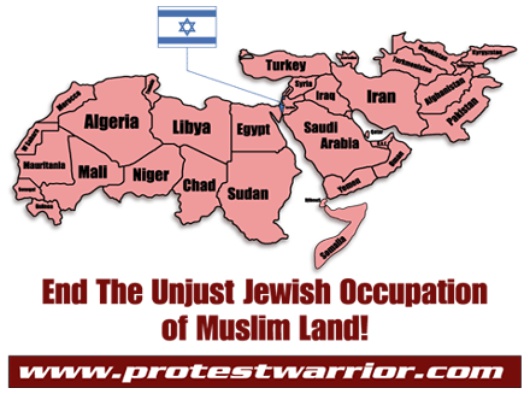 And finally below a pragmatic hard-line view to issue (The relocation option):
And finally below a pragmatic hard-line view to issue (The relocation option):



